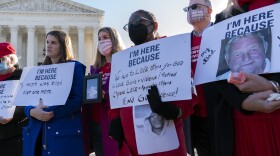File this one under Sisyphean tasks: The government of Iceland is drafting plans to ban pornography both online and in print.
Supporters of the ban, proposed by Interior Minister Ogmundur Jonasson, says it will shield children from harm.
Writing in the Guardian, Halla Gunnarsdottir, political adviser to Jonasson, said:
"The ministry's initiative emerges from an extensive consultation process on sexual violence, encompassing police, child protection specialists, lawyers and academic researchers. The experts raised concerns about the effects of porn on the nature – and possibly the scope – of sexual violence in Iceland. Research has also shown that children in Iceland are first exposed to pornography at the average age of 11. In some instances, children have been dramatically affected by it, and symptoms include social isolation and anxiety. There have also been reported cases of teenage boys re-enacting pornographic sexual acts on younger children. Finally, violent pornography is influencing teenagers' first sexual experiences."
She told The Associated Press that a committee of experts is drawing up the proposals and looking into how a ban could be enforced. One possibility would be to ban paying for porn using Icelandic credit cards; another would be a national Internet filter.
Iceland already has laws against pornography on the books. Here's more from the AP:
"Pornography is already banned in Iceland, and has been for decades — but the term is not defined, so the law is not enforced. Magazines such as Playboy and Penthouse are on sale in book stores, and more hardcore material can be bought from a handful of sex shops. 'Adult' channels form part of digital TV packages."
As you can imagine, the reaction to the proposal has been swift and vehement.
In an open letter to the minister released Thursday, the International Modern Media Institute said Iceland "should not serve as a role model for Internet censorship."
"The current discussion of blocking pornographic content has offered no definition, no evidence, and suggested no technology. This is an affront to basic principles of the society, and while we acknowledge that this discussion is at a starting point, we feel that the way it is being conducted is harmful."
But the government's efforts may face political reality. The country is scheduled to hold parliamentary elections in April, and the AP says "the unpopular coalition government could be thrown out."
Copyright 2021 NPR. To see more, visit https://www.npr.org. 9(MDAxNzg0MDExMDEyMTYyMjc1MDE3NGVmMw004))




